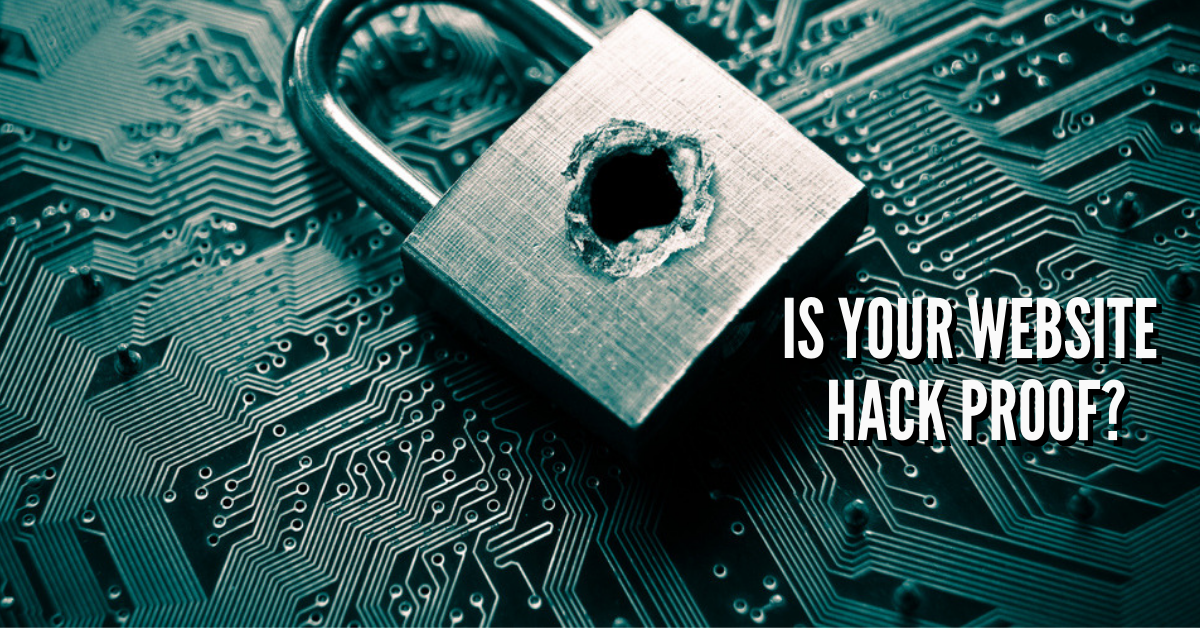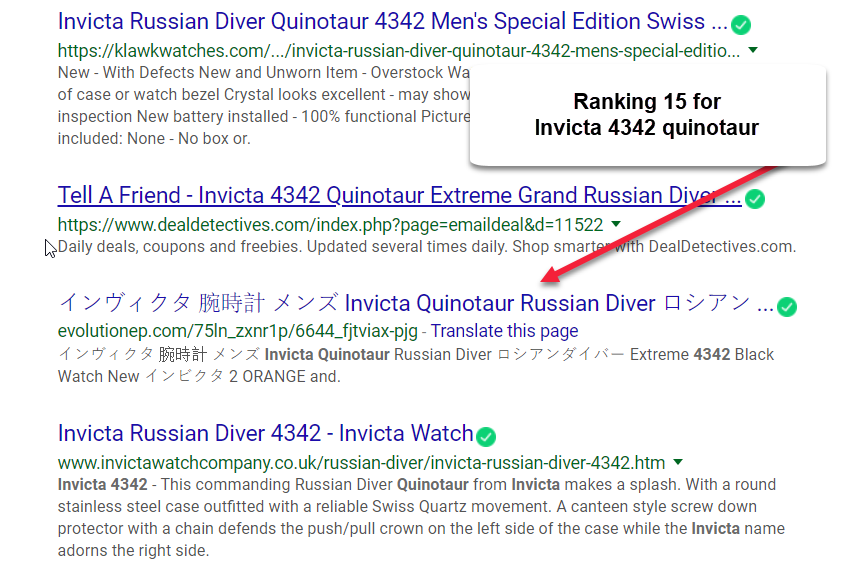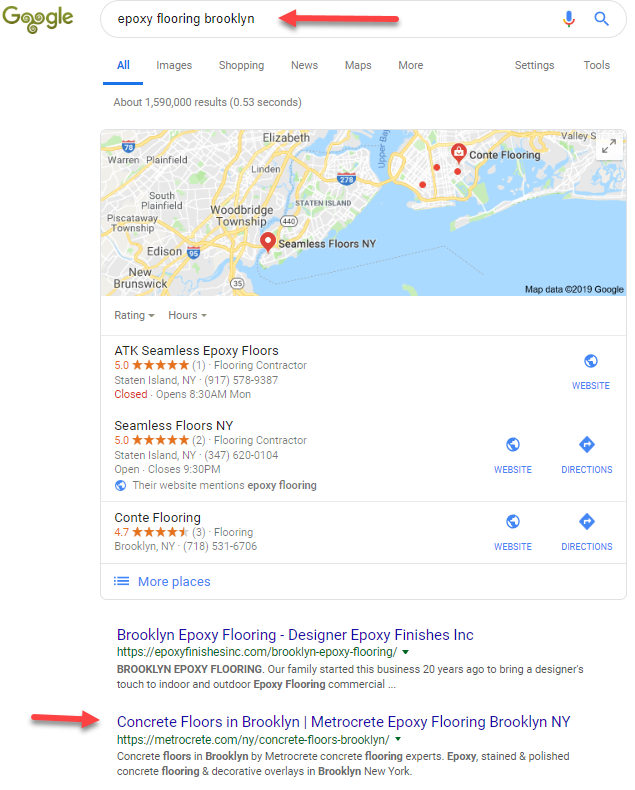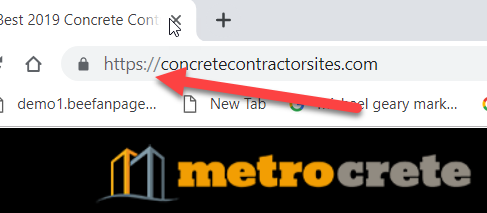Is Your Concrete Website Scaring Customers Away?

You might not know it, but without a security certificate, your site displays Non-Secure to every visitor to your website.
When visitors see your site isn’t secure, they can’t get off your website fast enough. So, that also means you’re losing customers. And even further, no website security also means your business faces exposure to the hassle of a hacked website.
Let me explain.
Website Hacking is a Daily Problem
If Facebook can go down, so can your website.
On March 13th, I tried to post a business tip to our Facebook page at Concrete Contractor Sites. I tried over and over to upload a photo. But no luck. I thought it was a problem with my computer.
Then I noticed my ads weren’t running. At the time, I wasn’t sure what happened or whether they were hacked or not, but something happened to compromise Facebook’s entire site. Articles I read online called the event an “Outage.”
If Facebook is vulnerable, then so is every website.
What Happens When Your Website Gets Hacked?
We started seeing lots of problems in 2018 from websites getting hacked.
Hacked websites can get permanently destroyed. Google will not like your site. Customers can get infected by a virus. It will cost you money from lost business, and no one will ever tell you. You’re in the penalty box.
Here’s a sample of a website that was hacked and taken for hostage.

It was by chance that I found these pages. I happened to be doing keyword research for this company and found them ranking for hundreds of eCommerce related keywords. And they were all in Chinese.
You can see below, one of the keywords was for “Invicta 4342 Quinotaur,” a Russian Diving Watch.
The hackers were able to insert malicious code into a high-quality site to drive traffic to a sales page where they sold watches.
The hackers added 200 pages in Chinese to the website. We cleaned the site. Not only was it expensive to fix the website, but the lost business was extensive.
How We Became Experts at Website Security
In 2017, our site Metrocrete.com was hacked. For a few months, we weren’t aware. There were no obvious visible signs.
But we did notice when concrete flooring leads stopped coming in. Looking at Google Analytics, we spotted the drop in our traffic stats.
So, we scanned the website and found the virus infection. Next, we started the process of cleaning the malware and spam injection. After the clean, our scanning tools indicated Metrocrete was 100% clean. Our next step required us to work on getting the bad pages removed from the Google index so we could recover our site ranking.
During the next 12 months, the Metrocrete Google ranking improved. But we never got back to #1 for any keywords. In fact, we couldn’t get to page 1. Something was not right.
Our expensive scanning tools said the site was clean.
We thought of abandoning the site. We made one last effort to check Metrocrete. By chance, we discovered additional malicious code embedded in our photos.
Once the malicious code was removed, the entire site speed and Google Rank zoomed right back to the top of Google.
See below, for the search “epoxy flooring Brooklyn,” our site ranks high on page 1. This is one of the top markets in the USA with 2.5 million people.

SSL Certificates: What You Need to Know
If your website is Non-Secure, it is vulnerable to hacking. In fact, hackers use website scraping tools to crawl the website looking for Non-Secure sites to penetrate and infect with malicious code.
Here’s how a Non-Secure and Secure website appear in your browser. These screenshots are from the Google Chrome browser:


Even though a website may rank well for certain keywords if the site is Non-Secure, it isn’t reaching its full ranking potential.
When switching from unsecure HTTP to secure https, your website will be on a different URL. To avoid any confusion with Google, it’s best to manually re-index the new URL. Re-Indexing will avoid any error pages that will occur.
Https Secure websites load faster and rank higher than non-secure websites (HTTP).
You should also be aware that most domain name and hosting providers provide SSL Certificate installation ranging from $75 to $1000 per year, depending on the site size.
However, be forewarned, security certificates for websites involve more steps for proper installation. Hosting providers offer security certificates, but their services don’t go much further than installing the SSL. We’ve seen on our client sites where hosting companies don’t make sure that the site reads secure (https) in all browsers, and they don’t go over the site to make sure that all images and page objects are also secure. Their services also don’t include notifying Google and other search providers about the change in page URL from HTTP to HTTPS to maintain your rankings without any interruption.
Get SSL Website Security Certificate for Your Concrete Website
Our SSL certificate for WordPress solution involves more than just installation. We monitor your site rankings from start to finish of the installation to ensure the search engines quickly recognize the changes and that every possible browser displays your secure site version right after the install. We also only charge a one-time setup fee, unlike SSL certificate providers who charge for the service every year.
Give us a call to schedule your non-secure website fix today (203) 762-1366.
